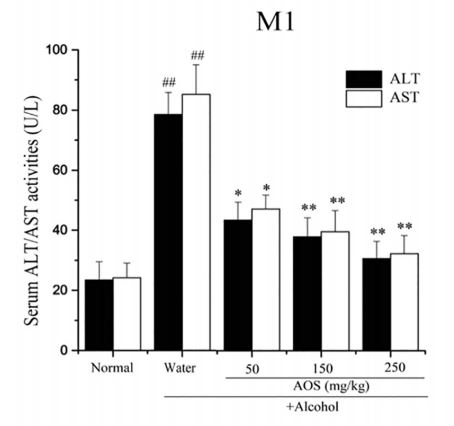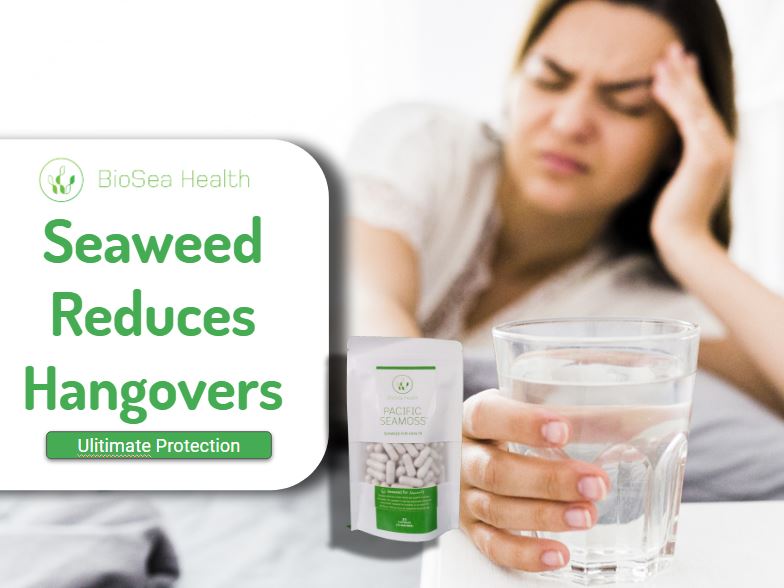Rainee, a convertee to Pacific Seamoss confided to me that consuming seaweed reduces hangovers. During the Covid-19, we know that consumption of alcohol has increased [1]. Not everyone wants to admit this, but I had consumed a bottle of white wine, and the next morning felt full of energy, and not hungover. My alcohol tolerance is low, and consuming 2 standard drinks of alcohol would leave me feeling very jaded the next day.
With the comments of Rainee, and my own experience we dived back into the literature. Was this effect real? Could it be explained?
You don’t have to be good to feel good!
Hangovers suck. If there’s one statement all of humanity can get behind, it’s hangovers suck. Throbbing headaches, fluey shakes, gut-churning bedspins—it doesn’t matter if you spent the night pounding cheap beer or vintage Bordeaux; when you’re hungover, you want one thing: to make all the awful feelings stop.
And there are whole heap of really weird hangover cures in various societies.
- Cow intestine, calves’ feet, and milk are the three main ingredients in khashi, the slippery white stew that Georgians swear by as a hangover panacea
- The Peruvians use the left over juice from ceviche
- The Italians have a Neapolitan tonic on the brink of extinction, gassosa dall’acquafrescaio which blends fresh-squeezed Sorrento lemon juice, sparkling volcanic water, and baking soda to create a frothy “eruption” in the glass
- Outer Mongolia – sheep’s eyes
- USA – prairie oysters – raw egg and Tabasco sauce (not calves testicles)
- Korean haejangguk (literally “hangover soup”) is the catch-all genre of beef-and-vegetable stews – but with seaweed.
- According to Irish folklore, it was said that the cure for a hangover was to bury the ailing person up to the neck in moist river sand. This is obviously not a recommended hangover cure.
Look No Further! Seaweed to the Rescue
In a consumer survey in 2019 from early users of Pacific Seamoss surprisingly said that they felt better at 8 to 12 days. Published research work from Prof Lindsay Brown on obesity rat models showed marked improvement in liver function. His team demonstrated red seaweeds reduction in fatty liver fat deposits, reduction in fat vesicles. [3] [4]. We know that the liver damage from obesity is pathologically the same as the damage from alcohol. For a full review of liver damage caused by non-alcohol check out this review [5] but for alcohol fatty liver disease this reveiw [6]. More concerning is that fatty liver disease is associated with cancer [7].
What we know from science:
- Alcohol causes liver inflammation
- Seaweed reduces liver inflammation and the presence of fat vesicles in the liver of with obesity models
- Seaweed extracts reduced liver inflammation
Extracts of Seaweed Reduced Liver Damage
In a trial with mice in 2017, Yin et al used extracted carbohydrates from a seaweed. They fed different rates of seaweed extracts to mice who were fed alcohol, and looked at liver function and size.
Growth rates increased
We know that alcohol stunts growth, one of the many reasons why women should not drink during pregnancy. We also know alcohol is contributor to a whole range of diseases including heart, dementia and cancers. But in this trial, scientists used growth rates to measure health in mice. They found seaweed extracts negated the effects of the alcohol on growth.
| Group | 7 day | 15 days | Growth % |
| Control | 22 | 28 | 31 |
| OAS 50 mg + alcohol | 24 | 34 | 43 |
| OAS 150 mg + alcohol | 23 | 33 | 45 |
| OAS 250 mg + alcohol | 23 | 34 | 47 |
| OAS 350 mg + alcohol | 24 | 35 | 43 |
When the researchers looked at the serum levels after feeding alcohol, and the damage change that alcohol sets off, what they concluded is that the seaweed has a protective mechanism on the liver.

So seaweed has a protective mechanism, and the authors concluded that mice should take these seaweed extracts 2 hours before consumption of alcohol.
But our best guess is taking seaweed on a daily basis will provide that same protection. Given most people who suffer hangovers will drink to excess on a regular basis. So take seaweed. Stop the hangovers. Then see a support agency to stop drinking to excess.
Our study demonstrated that AOS exerted promising hepatoprotective effects, which may have potential applications in prevention and protection of oxidative stress-induced liver injuries
Yin et al 2017.
Conclusion
- Seaweed shows protective mechanism against liver damage from alcohol.
- Seaweed shows protective mechanisms against obesity and high sugar intake.
- Customers report feeling better with no hangovers from alcohol
- Yet another reason to consume seaweed for good health.
Disclaimer
We do not promote excess alcohol consumption. We recommend you follow the appropriate health guidelines set by your national health bodies.
References
[1] Alcohol consumption increases during COVID-19 crisis (Australia National University Report)
[2] Yin et al 2017. Preparation, characterization and alcoholic liver injury protective effects of algal oligosaccharides from Gracilaria lemaneiformis Food Research International Vol 100, Part 2, October 2017, Pages 186-195 https://doi.org/10.1016/j.foodres.2017.08.032
[3] Wanyonyi, S., du Preez, R., Brown, L., Paul, N. A. & Panchal, S. K. Kappaphycus alvarezii as a Food Supplement Prevents Diet-Induced Metabolic Syndrome in Rats. Nutrients 9, 2 (2017).
[4] du Preez, R. et al. Carrageenans from the Red Seaweed Sarconema filiforme Attenuate Symptoms of Diet-Induced Metabolic Syndrome in Rats. Mar. Drugs 18, 97 (2020).
[5] Than N, Newsome P. 2015 A concise review of non-alcoholic fatty liver disease 2015
https://doi.org/10.1016/j.atherosclerosis.2015.01.001
[6] Osna, N. A., Donohue, T. M., Jr, & Kharbanda, K. K. (2017). Alcoholic Liver Disease: Pathogenesis and Current Management. Alcohol research : current reviews, 38(2), 147–161. (NCBI)
[7] Dhamija, E., Paul, S. B., & Kedia, S. (2019). Non-alcoholic fatty liver disease associated with hepatocellular carcinoma: An increasing concern. The Indian journal of medical research, 149(1), 9–17. https://doi.org/10.4103/ijmr.IJMR_1456_17
Support Agencies
Lifeline Australia https://www.lifeline.org.au Tel 131114
Alchoholics Anonymous
Australia https://aa.org.au/ 1300 222 222
UK 08009177650 https://www.alcoholics-anonymous.org.uk/
NZ https://aa.org.nz/ 0800 229 6757
Philippines http://www.aaphilippines.com/ WhatsApp +63 917 842 9280
Beyond Blue Australian 1300 22 4636 www.beyondblue.com

